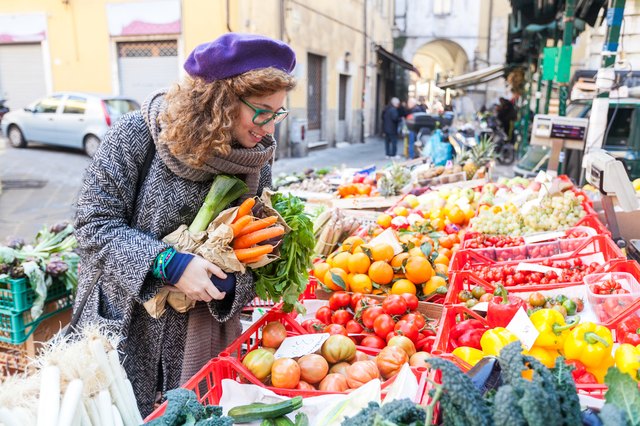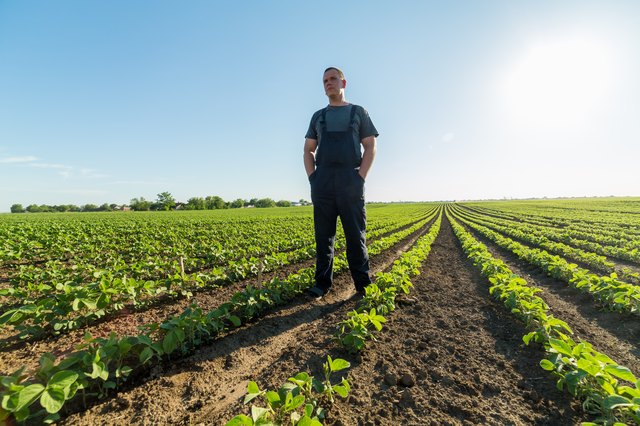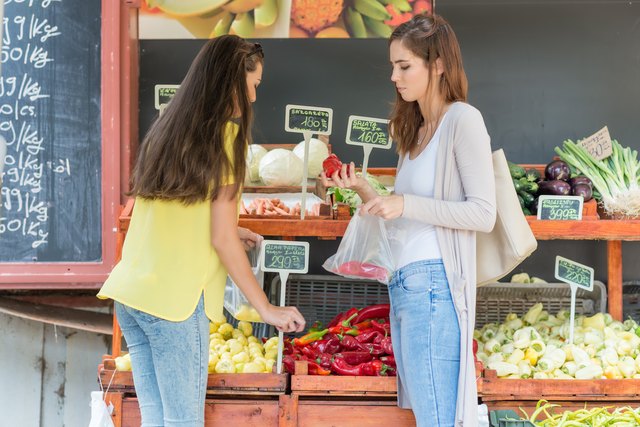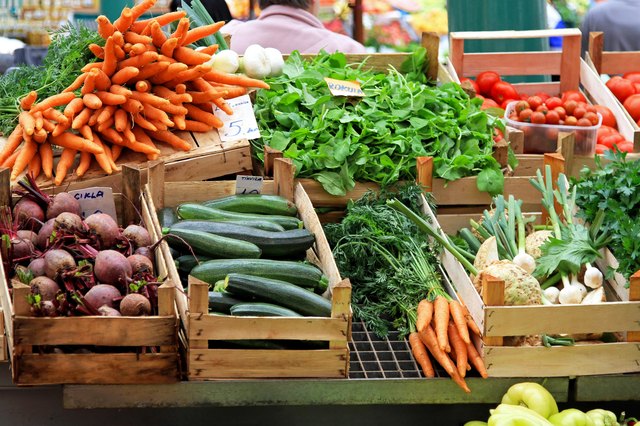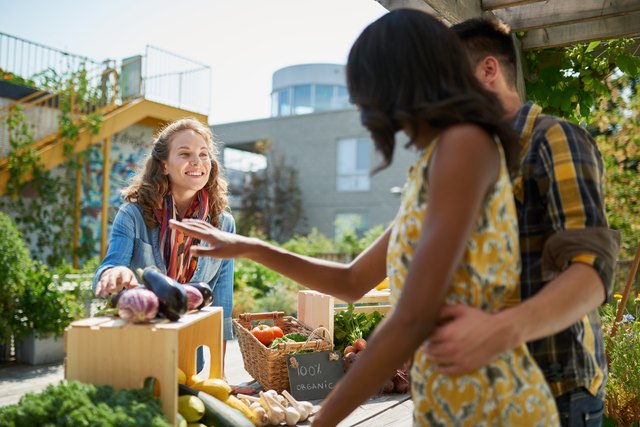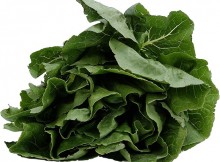13 reasons for shopping in the farmer's market
Advertisements

Advertisements
the agricultural trade market is growing. At present, more than 8500 markets are listed in the national agricultural trade market catalog of the U.S. Department of agriculture. These open-air markets provide locally grown fruits and vegetables, usually organic. Farmers who grow produce often work at their own stands and sometimes sell other fresh home-made products, such as cheese, nuts, flowers and jam. But the benefits go far beyond freshness. Please read on to find out all the reasons for checking the local farmers' market as soon as possible.
Credit: Adobe stock / jackfrog Credit: Adobe stock / crushing. You can ask questions shopping in the farmer's market can let you discover new agricultural products and ask questions about your food, usually to the people who grow it. " "It's great to talk to farmers who usually like to talk about their crops and give you ideas on how to prepare," says registered dietician Minh Hai Alex. Even as a nutritionist, I had absolutely no idea what ferns were before I moved to the northwest. To maximize your learning experience, ask questions. The seller can guide you to choose a specific product, offer service suggestions, and explain how various foods grow. Now listen to the Simpsons: the author of the Simpsons ran a marathon and was still living to make fun of it. You can resist colds and flu antioxidants are the top line of defense against diseases, including the common cold and flu. Your best source of nutrition protection? Eat fresh fruits and vegetables in the garden. " Food purchased at farmer's markets is usually fresher than in store, "said BECCI twombley, director of sports nutrition at the University of Southern California. Antioxidants are very sensitive and can degrade rapidly, so more freshly picked foods will have antioxidant capacity to eat a variety of colorful farmer fruits and vegetables to get different antioxidant ranges. Credit: Adobe stock / ajlatan Credit: wavebreakmediamicro / Adobe stock Credit: Adobe stock / oticki fruits and vegetables in the farmer's market according to the farmers market coalition, the price of LES is often the same as, or even lower than, the price of agricultural products sold in physical stores. Local farmers sell seasonal food in ample supply and spend less on marketing and packaging, enabling them to compete on price. Another cost advantage is that you can buy agricultural products in bulk in the peak season, and freeze or preserve them for future use in the off-season or at a higher price. Farmers also freeze tomatoes and berries during the peak season for later use in sauces and jams. Credit: Adobe / Zsolnai gergely homemade food from the agricultural market, such as bread, cake and condiment, usually does not contain artificial additives that may hinder or increase health. Most additives designed to extend the shelf life of food are unnecessary for fresh farmer's market foods, which flow rapidly from the kitchen to consumers. When buying sweets from a local farmer's market, remember that although sweets may be more natural than commercial sweets, they should be consumed in moderation. Credit: Jupiter images / Stockbyte / Getty Images Credit: markobe / Adobe stock Credit: viki2win / iStock / Getty Images shopping in the farmer's market can provide many weight-loss benefits: physical exercise, access to nutritious and comprehensive food, and improve food awareness. Fruits and vegetables are nutritious, providing more vitamins, minerals, water and satiated fiber than processed foods such as pretzels, white rice and soft drinks. The farmer market alliance found that proximity to the farmer market was associated with low body mass index. More attention to diet choice and daily activities can help to control weight. Credit: Adobe stock / wavebreakmediamicro Credit: Adobe stock / Julie Credit: Scott grissel / Adobe stock Advertisements 1. You will maximize your nutritional level. Shopping at the farmer's market means buying seasonal and local food, which leads to eating the most nutritious agricultural products, "said Minh Hai Alex, a registered dietician in Seattle, Washington. Seasonal agricultural products are harvested at their highest maturity and are more nutritious than those that have been shipped around the country or on shelves for a few days. In most agricultural markets, there are also choices of organic products.
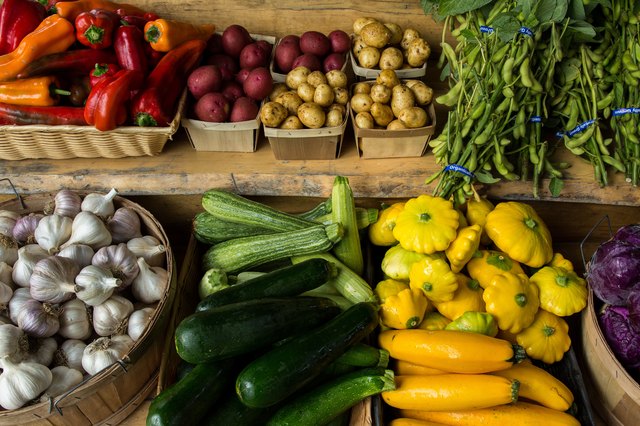

5. According to the sustainability table, the United States had 4.1 million farms in 1959, compared with 2.2 million now. Although the number of farms has decreased in recent decades, the average farm size has increased. The good news is that local farmers' markets account for a small but growing share of total U.S. agricultural sales. "It's important to support local farmers in this agribusiness and increasingly globalized economic world," said Minh Hai Alex, a registered nutritionist. Your purchase will contribute to the prosperity of nearby farms, increase the demand for local agricultural products, and make it easier for the public to obtain the benefits of seasonal prices.
6. Supporting your community also means supporting your community. According to the farmers market coalition, local retailers, including farmers' markets, have returned more than three times as much sales to the community as their chain competitors. Local growers also created 13 full-time jobs, while industrial growers created 3 full-time jobs. " Freddy Kaufmann, a small business owner in Florida, told the farmer's market coalition. Without a market, we would not be here. If you pay more attention to health than your health, extending to the nutrition of the earth, then you will protect the environment, and the agricultural market is a win-win situation. Buying locally grown food reduces the total "food mileage" (the distance from where food is produced to where it is ultimately consumed). This will reduce greenhouse gas emissions in the use, pollution and transport of fossil fuels.
8. You will save money

9. Homemade food (without additives)
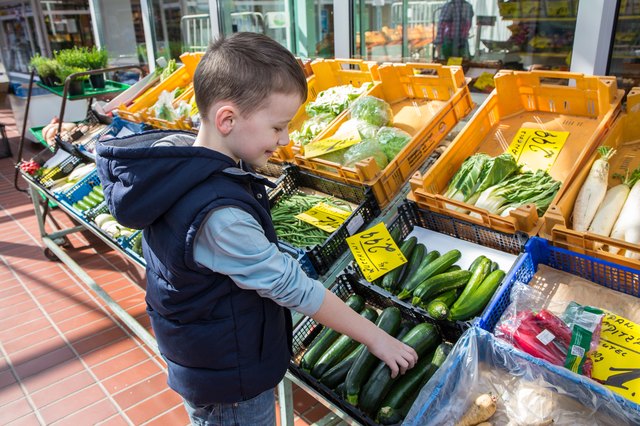
10. When you shop in the farmer's market, you will be glad to know that all the food will be used well. According to the farmers market coalition, most vendors can predict how much food they can sell in a day and prepare accordingly. Unlike grocery stores and restaurants, where they throw away excess food, farmers tend to returnCollect the rest of the food. Farmers may turn the remaining zucchini into zucchini bread, kale into cabbage slices, basil into garlic sauce, and then sell the prepared food on the market. Surplus fruit becomes the raw material of preserves, pies, skins and jams. Some farmers feed or compost unused agricultural products to livestock or donate additional items to food charities.
11. From colorful displays, the hum of music and conversation to the fragrance and taste of delicious food, the farmer's market is a sensory feast. In addition to pure pleasure, research shows that sensory stimulation can keep the brain young, Linda wasmer Andrews reported in the journal Psychology today. Multisensory stimulation is occasionally used as an adjunctive treatment for dementia. Sensory rich environments may also help delay age-related memory loss and prevent the formation of Alzheimer's related proteins in the brain. In order to enhance these potential perks, please pay attention to interacting with others, absorbing sound, scenery and taste.
12. Better weight management
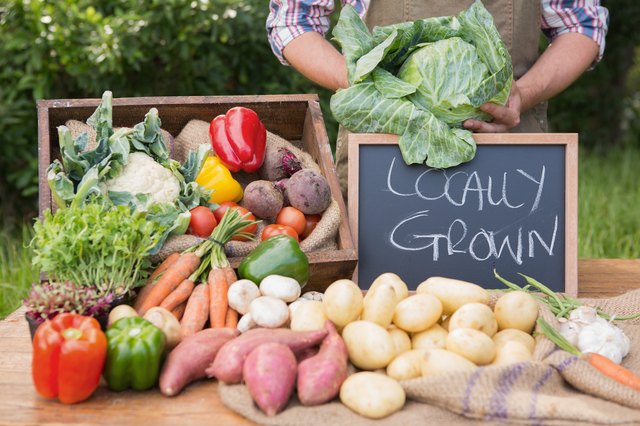
13. Psychologist Linda wasmer Andrews wrote: "the local farmer's market is a natural place to interact with neighbors." Immersing yourself in the people at the farmer's market can provide a sense of belonging, a sense of trust in your neighbor's health, and a sense of concern, she said. Buying locally produced products in a community market can also allow you to interact with like-minded people and possibly make new friends. In addition, according to the farmer's market alliance, people who often go to the farmer's market have 15 to 20 social interactions at a time, while grocery stores have only 1 to 2 social interactions.
What do you think? No matter you often or occasionally shop in the local farmer's market, you should always remember to eat nutritious whole wheat food, such as fruits, vegetables, nuts, seeds and whole wheat food. Change your diet lifestyle to include more nutritional fare invite benefits. Do you shop at the farmer's market? If so, what foods do you usually buy there and what benefits do you experience? Any suggestions or benefits? Please let us know in the comments below!
